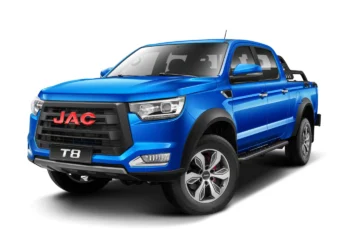Global auto hub Germany is in sharp focus as it is already betting billions on hydrogen fuel in sectors like steel and chemicals to meet climate targets.
BMW is hydrogen’s biggest proponent among Germany’s carmakers, charting a path to a mass-market model around 2030. The company also has one eye on shifting hydrogen policies in Europe and China- the world’s largest car market.
The Munich-based premium player has developed a hydrogen prototype car based on its X5 SUV, in a project already partly funded by the German government.
Jürgen Guldner, the BMW Vice President who heads up the hydrogen fuel-cell car programme, said the carmaker would build a test fleet of close to 100 cars in 2022. “Whether this (technology) is driven by politics or demand, we will be ready with a product,” he said, adding that his team is already working to develop the next-generation vehicles.
“We’re on the verge of getting there and we’re really convinced we’ll see a breakthrough in this decade,” Mr Guldner said.
VW’s premium Audi brand also said it had assembled a team of more than 100 mechanics and engineers who were researching hydrogen fuel cells on behalf of the whole Volkswagen Group and had built a few prototype cars.
Hydrogen Too Costly Now
Hydrogen is viewed as a sure bet by the world’s biggest truckmakers, such as Daimler AG (DAIGn.DE) unit Daimler Truck, Volvo Trucks (VOLVb.ST) and Hyundai (005380.KS), because batteries are too heavy for long-distance commercial vehicles.
Yet fuel cell technology- where hydrogen passes through a catalyst, producing electricity – is for now too costly for mass-market consumer cars. Cells are complex and contain expensive materials, and although refuelling is quicker than battery recharging, infrastructure is more scarce.
The fact that hydrogen is so far behind in the race to the affordable market also means even some champions of the technology, like Germany’s Greens, favour prioritising battery-powered passenger cars because they see them as the fastest way to reach their main goal of decarbonising transport.
The Greens do, however, back the use of hydrogen fuel for ships and planes and want to invest heavily in “green” hydrogen produced solely from renewable sources.
“Hydrogen will play a highly important role in the transport industry,” said Stefan Gelbhaar, the party’s transport policy spokesperson in the Bundestag.
Politics can be unpredictable though – diesel went from saint to sinner following Volkswagen’s Dieselgate emissions-cheating scandal, which came to light in 2015. Some carmakers view hydrogen technology as an insurance policy as the EU targets an effective ban on fossil-fuel cars from 2035.
Last year Daimler said it would wind down production of the Mercedes-Benz GLC F-CELL, a hydrogen fuel-cell SUV, but a source familiar with company plans said the project could easily be revived if the European Commission or a German government with Green participation decides to promote hydrogen cars.
“We’re focusing on (battery) electric first, but we’re in close cooperation with our truck guys,” said Jörg Burzer, Daimler’s head of production, when asked about that approach.
New Hydrogen Engine
Meanwhile, the Deutz company based in Cologne has now developed a new hydrogen engine, with which hydrogen cars could become serious competition for electric cars in the future. The hydrogen engine from Deutz does not have a fuel cell or battery, but burns the fuel directly.
The Technical Director of Deutz AG, Dr. Markus Müller said the six-cylinder TCG 7.8 H2 is based on an existing engine concept. It not only runs CO2 neutral but also very quietly and already delivers 200kW of power. “In principle, the engine is suitable for all current applications, but due to the available infrastructure, it will initially be used in the areas of stationary systems and generators as well as rail transport.”
The Deutz company is already planning series production of the hydrogen engine from 2024, initially for agricultural vehicles. The company itself specializes in the manufacture of commercial and agricultural vehicles.
Deutz is currently running a pilot project with the regional energy supply company RheinEnergie, in which the hydrogen engine is used in a stationary power generation system.
Frank Hiller, former CEO of Deutz AG, already said in 2021 that “We are already building very efficient and clean engines today. Now we are taking the next step, our hydrogen engine is ready for the market. An important milestone for us to make our contribution as a company to achieving the Paris climate goals.”
Deutz AG is currently not planning to implement the hydrogen engine in the automotive industry. The reason for this is the lack of hydrogen infrastructure, especially with regard to filling stations.
However, if the hydrogen infrastructure improves in the future, this new hydrogen engine could also bring about change in the automotive market. The national hydrogen strategy, which the German federal government adopted in June 2020, aims to make Germany a global pioneer in green hydrogen and to achieve and secure market leadership in hydrogen technologies in the long term.
READ ALSO: PAC Commends GIFEC for Its Strong Operational and Financial Position





















